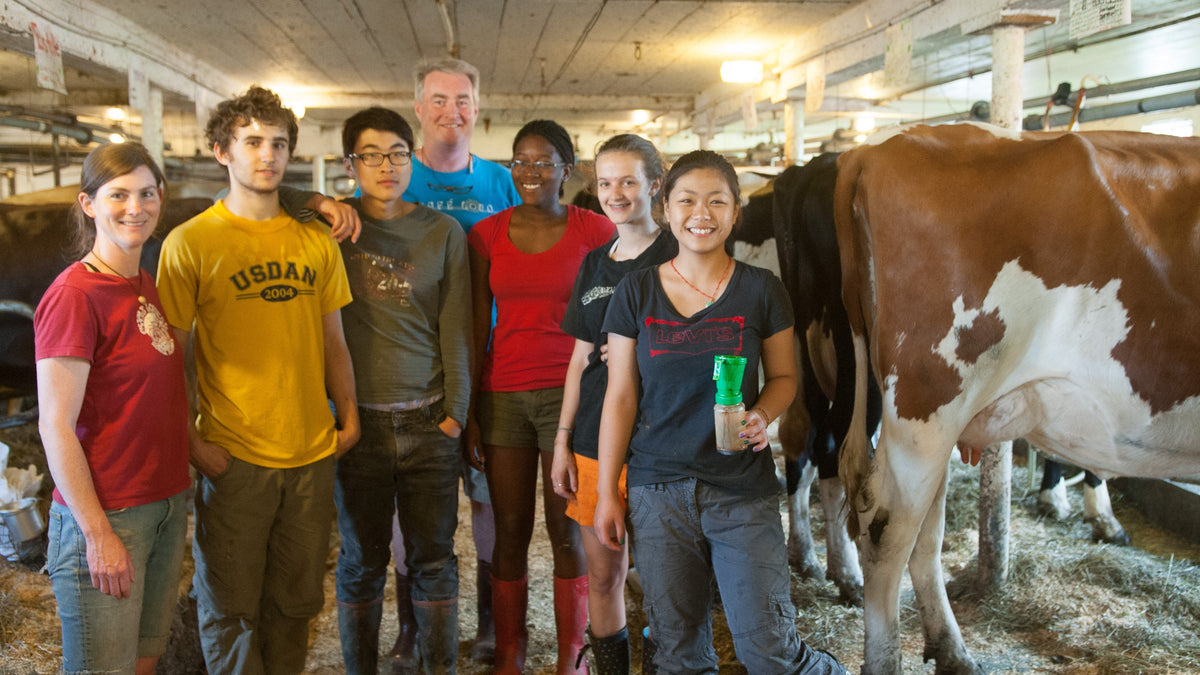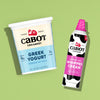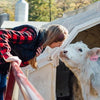
#Farmlove – The Putney School on Elm Lea Farm
The 225 students at The Putney School in southern Vermont drink some of the freshest milk around. They also play a major role in producing it through their work with the school’s 35-cow dairy herd.
Milk is far from the only benefit the high schoolers get from the on-school farm, which includes several acres of vegetables, pigs, turkeys and laying hens. In addition, there are riding horses and sheep and alpacas raised for fiber. Beyond the dining hall, the farm also plays a critical role in the experiential learning approach at this progressive, independent high school.

“The founder wanted the students to experience work,” explains farm manager and history teacher, Pete Stickney. “Every student has a job every day, from doing dishes, to farm chores, to cooking. They get an appreciation of where food comes from and an appreciation of the labor it takes to sustain a community.”

Delilah Cravens, a 17-year-old from New York City, came to The Putney School for its hands-on philosophy. “I was looking for a different kind of education,” she says, “more well-rounded, more learning by doing.”

But the city native never expected to enjoy the farming aspect as much as she has. “A.M. barn is notorious for being the most taxing of all the chores you can do,” Delilah explains. “You have to get up at 5 a.m. and you’re in with the cows before breakfast. But I ended up loving it. The trajectory to learning things is really different. You can just shovel gutters and leave, or you can get to know Pete and the animals and how the dairy industry works.”

Like all Putney students, Delilah started at a basic level and worked to earn a leadership role overseeing the morning crew. She also opted to become deeply involved in calving. Literally. “If you’d told me two years ago I’d be elbow-deep inside a cow…” she starts with a chuckle.

Delilah is considering exploring a possible career in midwifery but, she notes, what she’s learned in the barn goes far beyond the tangible. “It really does fill in the holes, things students might not get out of the classroom, like confidence and autonomy,” she says. On the farm, she continues, “As you prove yourself, you get more responsibility. Students feel respected and valued here in a different way.”

Avery MacLean from Lincoln, Massachusetts is also 17 and has only been at The Putney School for a few months, but she started her own chicken business when she was 12 and has also apprenticed on a farm in Maine. Her passion for agriculture led her to the school.

“It’s been incredible, more than I even thought it would be. I’m able to be so involved and learn so much,” Avery says. “We’re the ones doing the milking and pasteurizing and we’re the ones filling the milk crates. I think it’s really valuable for all the students.”

Twice a year, the school has something called “Project Week,” when students dig deeply into a topic of their choice. For her first project at Putney, Avery has chosen to explore the logistics and practicality of making yogurt for the school. “We drink our own milk. I figured why not make other dairy products?” she says “After some successful tests, she was excited to ramp up to try a larger-scale batch. “Just the fact that a student has so much power to change something,” Avery says, “that’s so meaningful to me.”

In addition to The Putney School, Cabot members include two other high school-based dairy farms where students build skills and confidence while learning about farming and agriculture: Alvirne School Farm and Briston County Agricultural High School.
The Putney School’s farm is part of their broader philosophy and focus on sustainability.













